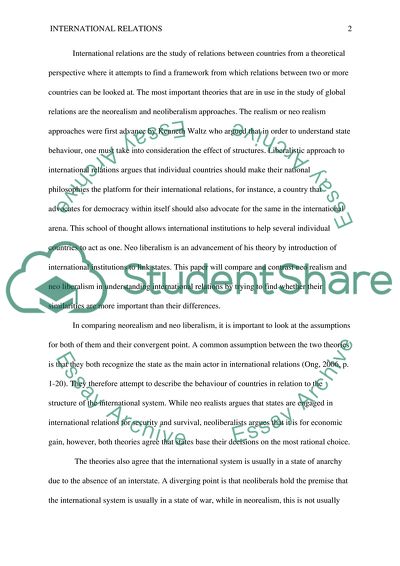Cite this document
(International Relations Essay Example | Topics and Well Written Essays - 1750 words, n.d.)
International Relations Essay Example | Topics and Well Written Essays - 1750 words. https://studentshare.org/social-science/1823192-compare-and-contrast-neo-realism-and-neo-liberalism-are-the-similarities-more-important-than-the-differences
International Relations Essay Example | Topics and Well Written Essays - 1750 words. https://studentshare.org/social-science/1823192-compare-and-contrast-neo-realism-and-neo-liberalism-are-the-similarities-more-important-than-the-differences
(International Relations Essay Example | Topics and Well Written Essays - 1750 Words)
International Relations Essay Example | Topics and Well Written Essays - 1750 Words. https://studentshare.org/social-science/1823192-compare-and-contrast-neo-realism-and-neo-liberalism-are-the-similarities-more-important-than-the-differences.
International Relations Essay Example | Topics and Well Written Essays - 1750 Words. https://studentshare.org/social-science/1823192-compare-and-contrast-neo-realism-and-neo-liberalism-are-the-similarities-more-important-than-the-differences.
“International Relations Essay Example | Topics and Well Written Essays - 1750 Words”. https://studentshare.org/social-science/1823192-compare-and-contrast-neo-realism-and-neo-liberalism-are-the-similarities-more-important-than-the-differences.


